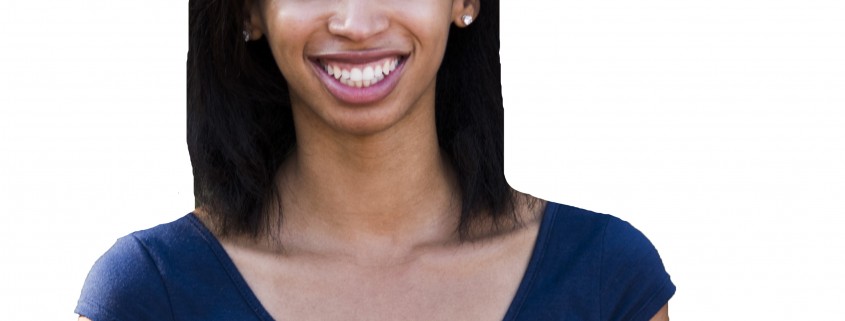COLUMN: Celebrities should play role in race discussions
I might be the biggest Kanye West fan out there. I know everyone tries to claim this, but not everyone has two posters of Kanye hanging over his or her bed.
So there, I win.
But at UCLA, some fraternity and sorority members took their admiration of the artist too far by hosting a Kanye West-themed party. As pictures from the Sigma Phi Epsilon fraternity and Alpha Phi sorority party last week show, students who attended, many of them white, showed up in blackface. They had smeared charcoal on their cheeks and foreheads.
Blackface, historically, is the act of wearing dark makeup to depict black people during performances. It is rooted in racism. It was offensive then, and it is offensive now.
As soon as October hits we always hear stories about people who somehow still feel that this form of mockery is OK. In 2013, Julianne Hough, while dressing up as “Crazy Eyes” from Netflix’s Orange Is The New Black for Halloween, threw on a layer of dark-toned makeup to complete the look. Two students last year wore blackface when they dressed up as tennis stars Serena and Venus Williams in South Africa, a country that also has had its fair share of race relation issues.
So despite all the outrage that occurs after these instances, it keeps happening. My Facebook friends best summarized my feelings on this latest craziness: “Lol it’s 2015 lol.”
Thousands of people — literally thousands — have tried to make it absolutely clear that these forms of racial insensitivity have no place on college campuses.
Jerry Kang, vice chancellor of UCLA’s Office of Equity, Diversity and Inclusion, tried to explain why during a demonstration held by black Bruins last week.
“It’s one thing to suggest you are actually focusing on one celebrity who is African American, it’s another thing to take it as a license to perform every attribute, every stereotype, every grotesque minstrelsy that you see,” Kang said.
Two weeks ago, the Daily Trojan editorial board advocated for a position like Kang’s to be created on our campus.
That position is beneficial, but we need someone from higher up to speak out. That’s where a celebrity like my idol Kanye West comes in.
Those students in the fraternity and sorority houses at UCLA recognized how much of a cultural icon Kanye is — that’s why he was the theme of the party. Social media heightens our sense of personal connection to celebrities. These platforms elevate celebrities’ profiles widening and expanding their platform to advance conversations, particularly those on race.
Pushing entertainers to use their fame for advocacy has long been a debated topic. Yet based on the tone deafness of college students, it seems like celebrities could be vital to prevent these instances from occurring.
Celebrities should absolutely speak up when they are at the center of a racial controversy because their words have the most influence.
You’re probably reading this and thinking, “Uh, well, Kanye does speak out a lot, especially when people don’t ask him.” Right now, however, he’s missing a key moment to talk on an issue that actually needs to be addressed.
He’s not the first artist to miss this vital window of opportunity. A few years ago the public voiced their anger over Jay Z not pulling out of his Barney’s deal when cases of racial discrimination on the part of the department store were revealed. It felt like the perfect time for the music mogul to make a logical — and especially financial — stance on an injustice he has rapped about repeatedly (Think: “99 Problems”).
Yes, it’s a tall order to ask of a celebrity. But if we college students are really serious about having people hear us then we must get celebrities to join our cause. The platform they hold is very profitable. Advertisers follow the money, and if celebrities speak against certain institutions, they are bound to change.
Then that’s where we come in. Students who truly feel offended by blackface (read: hopefully everyone) must continue to support celebrities who choose to speak up. While we hold them accountable to their positions of power, we must push them to do so by encouraging their brands and their mission. Support their statements, and recognize that they might have been made at a cost.
If we fans don’t push celebrities to step up more and offer them positive feedback when they do, nothing will change. The progress toward more racial sensitivity on campus will — as Kanye once rapped — continue to “all fall down.”
After reading “Wait An L.A. Minute” on Tuesdays, join Jordyn Holman in her millennial conversations on Twitter
@JordynJournals. She’s a senior studying print and digital journalism.


just saying, there is no evidence that anyone actually wore blackface. some were dressed as “gold diggers” with charcoal on their face and pickaxes, and others had fake facial hair, but there was nothing even approaching minstrelsy-level racism.
Having an “Office of Equity, Diversity and Inclusion” is a ridiculous waste of students’ tuition money. Does anyone really think having a bureaucracy set up to hammer the same political correctness message students are inundated with already will make a difference? The only reason USC would cower and go the way UCLA did is so they can pretend they are taking action on a subject that is so easy to pay lip service to.
BTW, if a sorority, frat or any other student group decided to have a “Justin Bieber Night” or “Miley Cyrus Night” – I guess universities are saying black, brown or yellow students should NOT participate for fear of offending white students? Or does the double standard hypocrisy still stand and live strongly?